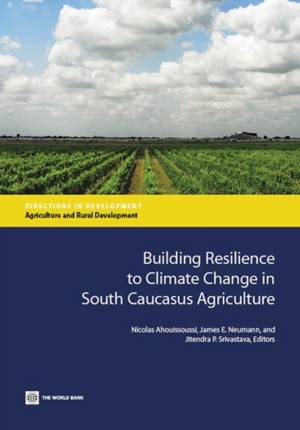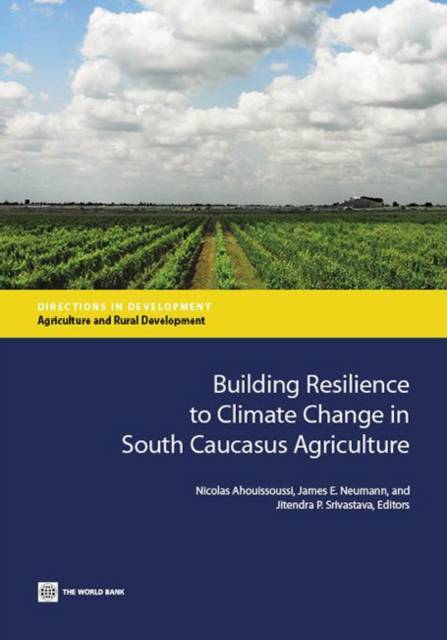
Je cadeautjes zeker op tijd in huis hebben voor de feestdagen? Kom langs in onze winkels en vind het perfecte geschenk!
- Afhalen na 1 uur in een winkel met voorraad
- Gratis thuislevering in België vanaf € 30
- Ruim aanbod met 7 miljoen producten
Je cadeautjes zeker op tijd in huis hebben voor de feestdagen? Kom langs in onze winkels en vind het perfecte geschenk!
- Afhalen na 1 uur in een winkel met voorraad
- Gratis thuislevering in België vanaf € 30
- Ruim aanbod met 7 miljoen producten
Zoeken
Omschrijving
This book illustrates the World Bank's commitment to assist countries to respond to the opportunities and challenges posed by climate change. Undertaken in collaborative partnership with policy makers, farmers, civil society, and other stakeholders in Armenia, Azerbaijan and Georgia, it provides a much needed response to the call for action by quantifying the impact and identifying key priorities for policies, programs, and investments to reduce the vulnerability of agricultural systems to climate change in the South Caucasus. The study responds to the urgent need for climate adaptation, as highlighted in the World Bank's "Turn Down the Heat" report. Notably, the South Caucasus is already contending with increasing aridity and more frequent extreme weather events (e.g. severe droughts, floods and hailstorms). It presents practical solutions for a more climate smart agriculture, at the regional, national and agro-ecological zone level in each country. The recommendations offered in this book are a compilation of the results of the three national studies, and highlight the need and potential for regional collaborative action to increase benefits, while also continuing to emphasize the need for an effective response at the national level. The national level results are supported by country reports, which provide more details. This work is but an important beginning. To achieve the goals of climate resilience in the agriculture sector, more work is needed to translate the proposals into reality. The analysis demonstrates that investments in irrigation infrastructure and on-farm technologies have great potential to raise agricultural productivity and improve the climate resilience of the sector. Demand-side agricultural water management will have high short-term payoffs, and these short-term payoffs are complementary to the success of long- term irrigation, drainage and other infrastructure investments. Strengthening the disaster risk management strategies (beyond agricultural measures) are also needed to help mitigate household risks from extreme events, especially for the poorest, who are the most vulnerable.
Specificaties
Betrokkenen
- Auteur(s):
- Uitgeverij:
Inhoud
- Aantal bladzijden:
- 164
- Taal:
- Engels
- Reeks:
Eigenschappen
- Productcode (EAN):
- 9781464802140
- Verschijningsdatum:
- 6/05/2014
- Uitvoering:
- Paperback
- Formaat:
- Trade paperback (VS)
- Afmetingen:
- 178 mm x 254 mm
- Gewicht:
- 299 g

Alleen bij Standaard Boekhandel
+ 118 punten op je klantenkaart van Standaard Boekhandel
Beoordelingen
We publiceren alleen reviews die voldoen aan de voorwaarden voor reviews. Bekijk onze voorwaarden voor reviews.









